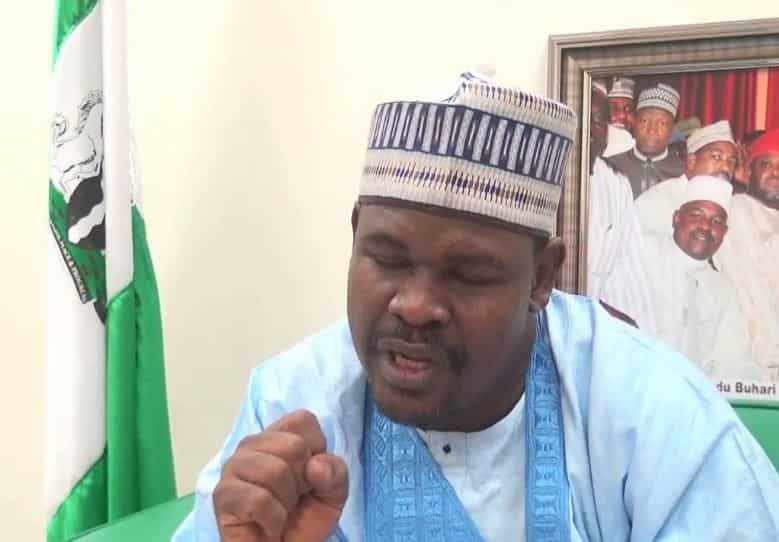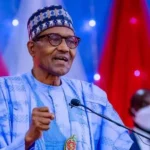A member of the House of Representatives from Jigawa State, Muhammadu Gudaji Kazaure, reactivated the seven-year controversy surrounding Stamp Duty deductions from bank transfers in his multimedia outing last week. The lawmaker raised dust about the clumsy status of the ‘huge income’ from the tax which, he alleged, had hit some N89 trillion, an amount which, if true, could fund the country’s annual budget for four years, at the rate of N21 trillion per year.
However, Kazaure’s outburst may not have been wholly based on the public interest, as Nigerians were to later learn that he was a member of a disbanded ‘consultancy firm’ that expected some 7.5 per cent commission from the ‘multi-trillion’ naira stamp duty recoveries.
As online banking transfer is entrenched in Nigeria, the Stamp Duty tax of N50 accrues to government from each of the thousands of transactions through Nigerian banks, but not much was heard about it until 2016 when some consultants claimed that the accruals totalled some N20 trillion. This resulted in a scramble between the Federal Inland Revenue Service (FIRS) and the Nigeria Postal Service (NIPOST) over who should collect the stamp duty tax. The controversy was put to rest with the amendment to Section 4 of the Stamp Duty Act, which states that the FIRS is the body with the statutory powers to collect stamp duty.
But not to be left out, state governments also dragged the federal government to court, arguing that the collection is the responsibility of states, not federal government. Yet, even the outcome of this case is not fully known by Nigerians.
Gbajabiamila meets Buhari over cash withdrawal limit, trapped ‘N89trn’ stamp duty
FG to reimburse Borno N9.43bn for road, flyover construction
Moreover, another thrust of Gudaji Kazaure’s quarrel with government is that Buhari had approved a committee, of which Kazaure is secretary, to investigate and track fraud in the recovery of stamp duty tax that accrue to government. Also, in June 2020, an Inter-Ministerial Committee on Audit and Recovery of Back Years Stamp Duties was inaugurated by the federal government. Its responsibility was to recover backlog of unremitted stamp duty from banks and other companies in the various sectors of the economy.
All of these point to the needles and wasteful duplication of responsibilities at the heart of governance in this country. We cannot understand why consultants are needed to carry out tasks that government agencies have the capacity and skills to execute, nor why special committees are needed to investigate possible fraudulent breach of the law when Nigeria has several anti-corruption agencies like the Economic and Financial Crimes Commission (EFCC), Independent Corrupt Practices and Other Related Offences Commission (ICPC), Revenue Mobilization and Fiscal Commission (RMAFC) and the like, to investigate such matters and where applicable, even prosecute offenders.
Almost seven years since the issue came to the fore, government is yet to clearly tell Nigerians the status of stamp duty recovery. In his statement reacting to allegations by Gudaji Kazaure, the Senior Special Assistant to President Muhammadu Buhari on Media and Publicity, Garba Shehu, told Nigerians that “Mr President has not completely ignored these matters. Indeed, a duly authorised committee under the Attorney-General and Minister of Justice, Abubakar Malami (SAN), is working to reconcile, recover and transfer all stamp duties into Stamp Duties Central Account.” While this may be true, it nevertheless raises the important question of why the process is taking so long.
As it were, the controversy surrounding Stamp Duty Tax is caused by the lack of transparency in the collection and recovery of the tax. While Kazaure talked about a huge sum of N89 trillion as accruing from stamp duty, the president’s spokesman responded to the figure by saying, “Indeed, if the federal government can find N89 trillion, it can pay off all its debt, both foreign and local and all state government debts and still have over N10 trillion left. So, the claim by these so-called consultants and the disbanded committee is totally ridiculous and a complete mockery.”
But the question Nigerians are asking is, if the amount is not N89 trillion, how much is it, and more importantly where is it? Based on the Finance Act 2020, it seems the tax is shared between the federal and state governments as Electronic Money Transfer Levy (EMTL). But it is not clear how much EMTL is generated monthly.
We call on government to create a dashboard that shows daily stamp duty collections by banks so that all concerned, including FIRS, RMAFC, CBN, and the like, can access them real time. As long as the collection process is shrouded in secrecy, and the inter-ministerial committee meant to recover the backlog foot-drags on the assignment, government creates a large space for suspicion among Nigerians.
We urge all individuals and institutions involved to be more transparent and come clean with Nigerians on stamp duty collection and recovery. This is another good government policy that must work to the benefit of the country as envisioned, not yet again shrouded in unexplained mystery.

 Join Daily Trust WhatsApp Community For Quick Access To News and Happenings Around You.
Join Daily Trust WhatsApp Community For Quick Access To News and Happenings Around You.


